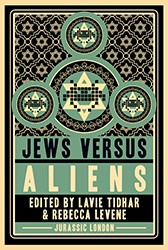Eastern Europe, August 1942. The Khazar KHaganate, an isolated nation of Turkic warriors, lies between the Black and the Caspian Seas, caught between a belligerent nation to the west that the Khazars call Germania and a city the rest of the world calls Stalingrad.
After years of Jewish refugees fleeing the war and streaming across the border from Europa, Germania launches its siege on Khazaria. Only Esther, the daughter of the nation’s chef policy adviser, sees the ominous implications of Germania’s disregard for Jewish lives. Only she realizes that this isn’t just another war but an existential threat. After witnessing the enemy warplanes’ first foray into sovereign Khazar territory, Esther knows she must fight for her country. But as the elder daughter in a traditional home, her urgent question is how.
Before daybreak one morning, she embarks on a perilous journey across the open steppe. She seeks a fabled village of Kabbalists who may hold the key to her destiny: convincing her entire nation to join the fight for its very existence against an enemy like none Khazaria has ever faced before.





